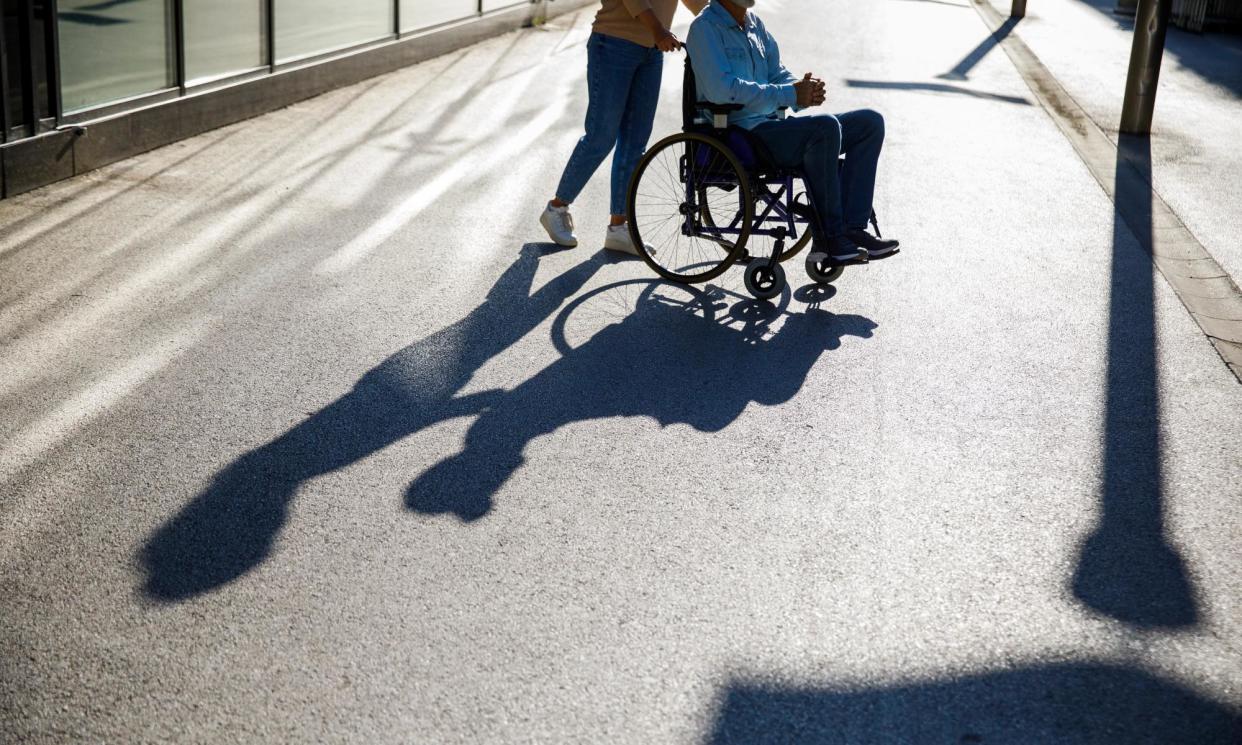Experts hope AI tool can cut use of restraints and seclusion on NDIS participants

Australian researchers hope a new AI-supported educational program will help reduce the use of restraints and seclusion on people with disability.
The Promoting Positive Behaviour Support Practice program is designed to help practitioners create safer, respectful, constructive plans to guide carers and support workers’ responses to challenging behaviour.
“Challenging behaviour” includes destructive acts, self-injury, aggression or any behaviour at a level of repetition or intensity that may place a person with disability at risk of harming themselves or others.
Related: ‘Outrageously scary’: NDIS participants fear proposed changes will give them less choice and control
“This behaviour is people with disability using the best means they have to try to communicate that something is not right for them,” the University of Melbourne’s Prof Keith McVilly, who worked on the project, said.
“They’re in pain, they’re unwell … they’re not being listened to, and we’ve failed to provide the support they’re looking for. These behaviours are a last resort.”
The disability royal commission heard harrowing stories about people subjected to restrictive practices. In the 2021-22 reporting period, 1.4m instances of unauthorised restrictive practices used against 8,830 NDIS participants and 5.58m instances of authorised use against 8,685 people.
Restrictive practices can include confining a person to a room or physical space (known as seclusion), the use of a device to restrict a person’s movement, physical restraint by another person or the use of medication.
The NDIS watchdog has identified the abysmal quality of most behaviour support plans – which are submitted to the commission as part of the regulatory process – as a key problem.
The commission’s 2022 audit found that more than 80% of the plans were either weak or underdeveloped, especially when it came to identifying positive or therapeutic ways to address the person with disability’s needs, and nearly 70% of plans included no consultation with the person with disability at all.
The new program allows behaviour support practitioners to upload segments of their draft plans into a tool – developed using natural language processing and machine learning models – that then analyses the plan and provides feedback.
When bad practice or areas for improvement are identified, the program directs the practitioner back to specific components of the online educational resources. “The idea is they’re being almost coached by the AI in conjunction with the educational resources, so that by the time they submit the plan it should be a functional or compliant plan,” McVilly said.
The program came out of a collaboration between the University of Melbourne, University of Queensland, and Flinders University, and was funded by the NDIS Quality and Safeguards Commission. It was developed partly as a response to the increased use of restrictive practices.
Catherine McAlpine, the chief executive of Inclusion Australia, said people with disability “tend to not know that they even have a behaviour support plan, let alone see them”.
“There can be a tendency for practitioners and providers to be more focused on the behaviour control rather than understanding of the context and factors that are driving the behaviour,” she said. “Behaviour support plans can end up being about fixing the behaviour, rather than fixing the drivers of that behaviour, or the problem that actually needs to be solved.”
McVilly agreed. “Good science shows us [that] we’ve got a huge possibility of reducing challenging behaviour if we just understand what it’s about and can appropriately respond. It sounds simplistic, but it’s one of those things that’s never done, or not as thoroughly as it should be done,” he said.
McAlpine said it was positive to see projects aimed at improving the quality and processes of developing behaviour support plans, but she had questions about the role the NDIS commission would play in ensuring they yielded material improvements for people with disability.
“What requirements might there be on practitioners in terms of improvement? What monitoring of a decrease in restricted practices will there be?” McAlpine said.
“Our experience is that voluntary processes tend to result in good people doing better, which is great, but in others still not addressing fundamental issues, such as upholding people’s human rights.”
A spokesperson for the NDIS commission said it was “committed to improving the quality of specialist behaviour support”.
“We use a range of regulatory powers and functions as set out in the NDIS Act 2013 and Rules to raise the quality of behaviour support plans, promote the reduction of restrictive practices, and hold providers accountable where breaches of the NDIA Act and associated Rules are identified,” the spokesperson said.


